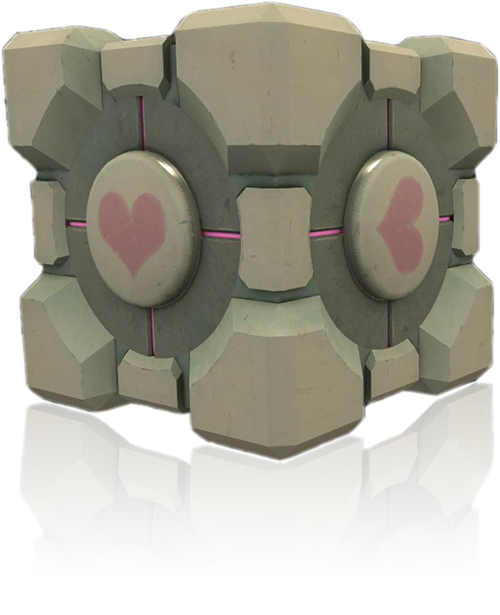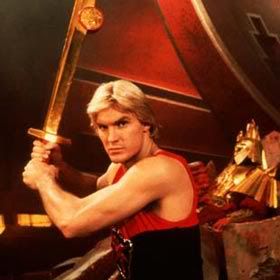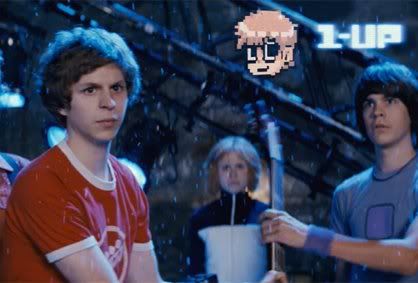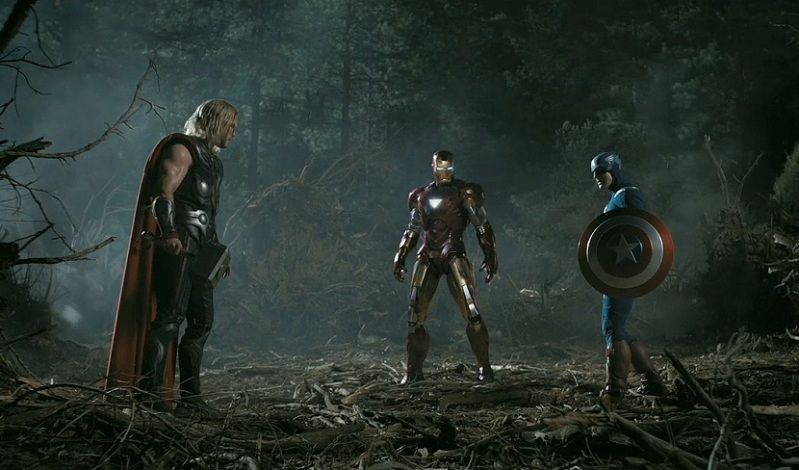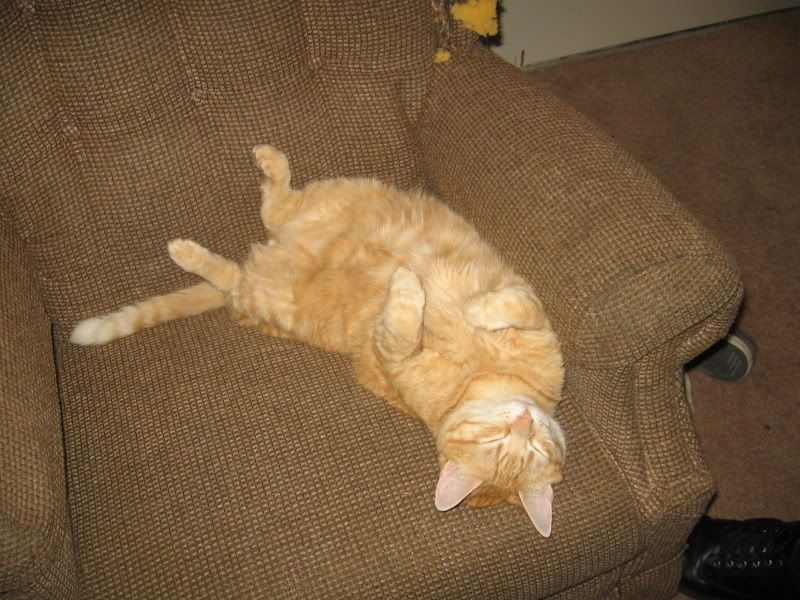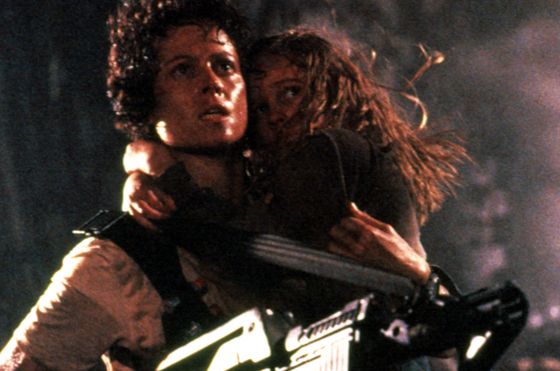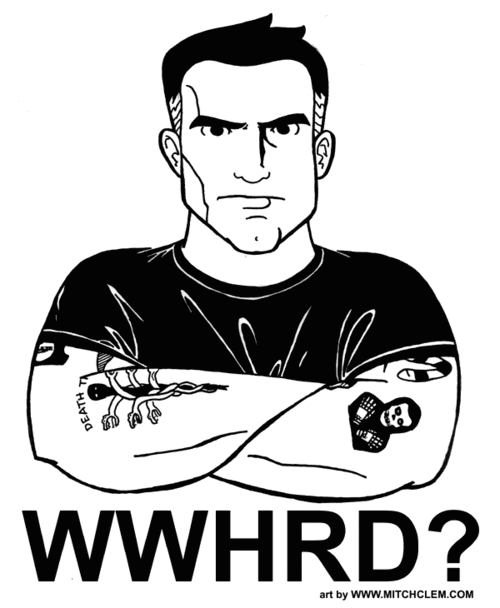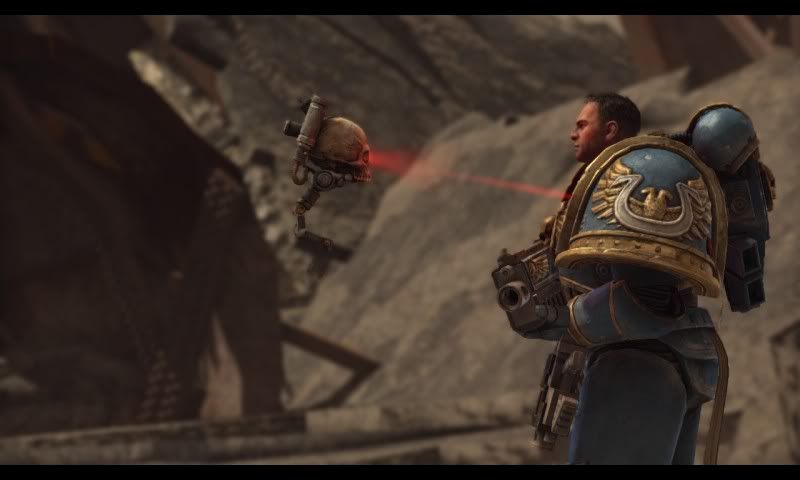
For all of its great design work, innovative storytelling through games, flat corporate structure, and altogether positive image, Steam can be downright insidious at times. This past weekend, for example, they held a sale on everything related to Warhammer 40,000 and its games. I got
Dawn of War II as a Christmas present, including the
Chaos Rising expansion, and had only played the demo of the over-the-shoulder shooter
Space Marine. So how do the games hold up, and how do they do representing the universe from which they come?
Dawn of War II & Chaos Rising
I'd played the previous
Dawn of War game and its expansions, so I knew the sequel would likely continue being a different experience from other RTS titles. Not only does
Dawn of War II provide that gameplay, it surprisingly also showcases a coherent narrative with interesting characters. Rather than split its single-player campaign between the different races available, it keeps its focus on the Blood Ravens chapter of the Space Marines, and the tale of a young and untested Force Commander (that's you) dealing with the invasion of the chapter's recruitment worlds. Space Marines can come across as taciturn, even sullen warrior-priests in the lore, which as I understand it is a departure from their first appearance in 40k back in its first edition. The characters in
Dawn of War II that make up your closest allies and battle brothers, by contrast, show a diversity of personality and motivation that works very well. Minor characters, such as the governor's adjutant on Meridian and the Eldar farseer, also offer glimpses of depth and complexity you might not expect from this setting. All of the characters are voice acted well, which I'm sure is a relief to anybody who is at all familiar with the last original
Dawn of War expansion,
Soulstorm. The gameplay is focused more on squad-based tactics than it is building a huge army and tossing it at whatever looks at you funny. Especially on Primarch difficulty, things like using cover and timing attacks properly is essential. The rewards for doing well are improved gear for you and your sergeants, as well as experience you can use to enhance abilities. It gives the game an RPG feel while holding onto its RTS roots. I didn't really touch multiplayer in
Dawn of War II, given the way the single player draws you in, and I do plan on running through and finishing the campaign again on that highest difficulty. It challenges my brain.
Dawn of War II: Retribution
The second expansion to
Dawn of War II sees it returning to some older RTS &
Dawn of War staples. There are now multiple single-player campaigns, which I suspect all play out along very similar lines. However, voice acting and characterization remain top-notch. I am, in particular, fond of the Imperial Guard's Lord General, a man whose stiff upper lip can be difficult to see under his mighty mustache, moonlighting as a big game hunter when he isn't sending waves of impressionable young men into the fray armed with glorified flashlights. I believe some of the characters from the base game and
Chaos Rising return for the Space Marine campaign, so I may need to play through that one, as well. Unfortunately, the tight focus on squad tactics has been lost, in favor of more traditional RTS structures and strategies. Building up sufficient forces to deal with incoming threats feels a lot easier than manipulating the limited resources of the previous campaigns. It's still fun, but to me it just isn't quite as challenging. It was
Retribution, though, that introduced me to the multiplayer mode known as The Last Stand. Being interested in MOBA-style cooperative strategy, The Last Stand is right up my alley. Three players, each commanding a single 'hero' unit, must hold off wave after wave of incoming enemy units from the various races available in
Dawn of War. Each hero has unique abilities, equipment, and strengths. The speed at which you dispatch your foes, the number of rounds you survive without a player becoming incapacitated, and the strategic points you hold all factor into your score. Between games you level up your heroes and assign them equipment and abilities. As quick little bite-sized morsels of RTS & MOBA-flavored fun, it works quite well.
Space Marine
My
first impressions of this shooter/spectacle fighter were good enough that I picked up the full game while it was on sale. The action maintains its weight and ferocity, and the story seems coherent enough so far. I can't say the Ultramarines are showing quite the diversity of the Blood Ravens from
Dawn of War II, but the voice acting is still good and the characterization thus far is coherent and consistent with the flavor and atmosphere of the source material. With the full version I've also been able to try my hand at the multiplayer, which is a decent experience. Joining a small squad of Space Marines, be they loyal or Chaos, to control points, annihilate the enemy, or seize control of an ancient weapon has appeal in and of itself, but some of the nuances of the gameplay make it feel just different enough to be worth a look. At the start of the mission or when you respawn, you can pick from several different kits you've unlocked through gameplay: standard Tactical, a Devastator/Havoc heavy weapons loadout, and the high-flying Assault/Raptor kit. The biggest attention-grabber, for me at least, is that when you get killed, you can copy the loadout of the player that killed you. Even if they're twenty levels above you with access to equipment and perks it will take you hours to acquire, you can load yourself up to mirror them and engage in a little payback. It does have some issues, such as mics always being hot and the peer-to-peer lobby based system that indicates the console port nature of the game. Unlocks happen at a snail's pace and there are a few weapon balance problems. I'm going to try the Horde mode and see what else I can unlock through some casual dabbling, but I don't see it replacing TF2 or Tribes: Ascend any time soon.
Blue Ink Alchemy






